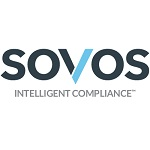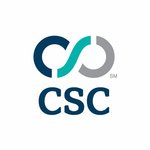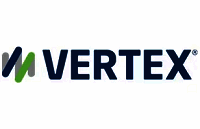Yes, most sales tax software may be accessed from a variety of devices and platforms, including desktop computers, laptops, tablets and smartphones. This gives businesses the freedom and convenience to handle their sales tax from anywhere. Some software may require a specific operating system or browser, so ensure compatibility before purchase. Make sure you select software that provides secure access to sensitive tax information.
List of Best Sales Tax Software
TaxJar is a reliable tax solution that has gained the trust of more than 15,000 businesses. It simplifies sales tax calculation and seamlessly integrates with popular platforms like Amazon, Shopify, and PayPal. This streamlined process makes tax comp...Read More TaxJar
TaxCloud is solution for businesses of any size seeking to simplify their sales tax compliance. With over 15 years of proven success and a rapidly expanding user base of 2,000+ satisfied customers, TaxCloud provides precise calculation, collection, a...Read More TaxCloud
Sovos Intelligent Compliance Cloud solution for sales tax compliance. This all-in-one software equips you with powerful tools to stay ahead of ever-changing compliance requirements. With features including e-invoicing compliance, tax determination, a...Read More Sovos Intelligent Compliance Cloud
Ledgible is a accounting and auditing platform designed specifically for blockchain assets. Our solution acts as a conduit between traditional financial structures and emerging digital assets by offering a unified perspective to financial institution...Read More Ledgible
LOVAT is a tool for easy and stress-free VAT and sales tax filing. Our intuitive online platform gathers all your tax data from multiple sales channels and quickly files VAT returns with just a few simple clicks. With accurate tax calculations, timel...Read More LOVAT
CSC Corptax is a corporate tax software designed to optimize processes, increase productivity, and promote transparency. With a strong track record of serving domestic and international clients, including Fortune 500 companies, this software offers a...Read More CSC Corptax
ONESOURCE Indirect Tax is a sales tax solution for small businesses. Simplify your tax compliance process and effortlessly adapt to constantly evolving sales tax regulations. Stay on top of your tax obligations regardless of your business location an...Read More ONESOURCE Indirect Tax
CFS Tax is a software solution for all your tax needs. With its efficient automation features, CFS Tax simplifies complex tasks, reduces errors, and saves you valuable time. This gives professionals the ability to focus on more important tasks and pr...Read More CFS Tax
Vertex is a leading tax technology software that has been supporting businesses since its inception in 1978. With a strong reputation for providing integrated and efficient tax solutions, Vertex has successfully aided over 10,000 companies. Count on...Read More Vertex
TaxRaahi GST is a sales tax software for accountants. Our feature-packed and user-friendly solution offers a seamless GST dashboard, allowing accountants to easily handle all client documents from one screen. With TaxRaahi GST, you can streamline you...Read More TaxRaahi GST
GreenGST, Indias premier sales tax compliance software. Our user-friendly platform streamlines your GST e-filing process, making tasks such as report generation, invoice creation, and data reconciliation effortless. Trusted by numerous manufacturing...Read More GreenGST
CCH SureTax is a sales tax solution for businesses. With its advanced cloud platform, this SaaS software delivers accurate calculations in real-time, specifically tailored for communications tax. See for yourself with a demo and streamline your tax p...Read More CCH SureTax
Avalara, a accounting software designed for simplified VAT compliance. This top-performing tool streamlines tax calculations, return filing, and document organization, guaranteeing precision in tax filing for its extensive user base. With regularly u...Read More Avalara
VATBox is the leading VAT filing solution chosen by more than 1500 satisfied clients. Seamlessly integrating data from multiple sources, VATBox eliminates duplicates and validates information using trustworthy sources. Effortlessly submit and monitor...Read More VATBox
Learn More About Sales Tax Software
- What Is Sales Tax Software?
- What Are The Recent Trends In Sales Tax Software?
- Benefits Of Using Sales Tax Software
- Important Factors To Consider While Purchasing Sales Tax Software?
- What Are The Key Features To Look For In Sales Tax Software?
- Why Do Businesses Need Sales Tax Software?
- How Much Time Is Required To Implement Sales Tax Software?
- What Is The Level Of Customization Available In Sales Tax Software?
- Which Industries Can Benefit The Most From Sales Tax Software?
- Conclusion
What Is Sales Tax Software?
Sales tax software is a sort of digital application that allows businesses to automate and manage the process of calculating, collecting, and remitting sales tax to the government. This program is intended to simplify the typically complex and time-consuming chore of sales tax compliance, allowing firms to focus on more vital elements of their operations. Sales tax software works by integrating with a company's existing financial systems, such as accounting or POS software.
It employs complex algorithms to determine the proper amount of sales tax payable depending on variables such as product category, customer location, and tax jurisdiction. This allows firms to avoid costly human errors while also ensuring compliance with constantly changing sales tax laws and regulations. Aside from computing sales tax, this program prepares and files tax forms, creates reports, and monitors crucial dates and tax rates.
Some complex sales tax software even includes features such as multi-state tax management, exemption certificate management, and real-time rate and boundary adjustments. Investing in sales tax software can help firms save time, minimize the chance of compliance errors, and save money in the long term. With the rise of e-commerce and the complications of cross-border sales, businesses of all sizes now require dependable and effective sales tax software.
When looking for the best sales tax software for your company, consider your industry, transaction volume, and budget. Choose a renowned and trusted company with excellent customer service to ensure a smooth and effective installation. Businesses that use the proper sales tax software may successfully manage sales tax compliance while focusing on what they do best: running and expanding their business.
What Are The Recent Trends In Sales Tax Software?
In recent years, sales tax software has advanced significantly in terms of technology and features.
Buyers should be aware of the following recent sales tax software trends:
1. Automation And Integration: As tax rules and regulations get more complicated, businesses are increasingly turning to automation to streamline their sales tax operations. Modern sales tax software includes tools that automate tax calculations, collection, and reporting. Furthermore, many software vendors provide connections with common accounting and e-commerce platforms, making it easier for firms to handle sales tax compliance.
2. Real-Time Tax Rates: Previously, businesses were required to manually update their tax rates whenever tax rules changed. However, thanks to technological improvements, sales tax software now provides real-time tax rates that are automatically updated whenever tax regulations change, assuring accurate and up-to-date tax calculations.
3. Cloud-Based Solutions: As remote work becomes more prevalent, the demand for cloud-based solutions has grown. Cloud-based sales tax software enables businesses to access their tax information from any location, at any time, making it an ideal choice for enterprises of all sizes.
4. Multi-State And International Tax Compliance: As firms grow into new markets, there is an increased demand for sales tax software that can handle multi-state and international tax compliance. Modern sales tax software includes capabilities like automated nexus determination, tax calculation, and reporting for various jurisdictions, making it easier for businesses to follow tax rules.
5. Analytics And Reporting: In addition to tax compliance, sales tax software now includes powerful analytics and reporting features that can help businesses gain useful insights into their sales tax data. This can assist firms detect potential hazards, trends, and tax-saving options.
Benefits Of Using Sales Tax Software
Sales tax software is an invaluable resource for businesses of all kinds that must collect and remit sales taxes to the government. This program automates the process of computing, collecting, and reporting sales tax, making it easier and more accurate for firms to comply with tax regulations.
If you're thinking about investing in sales tax software, here are some significant benefits to consider:
1. Saves Time And Increases Efficiency: One of the most major advantages of adopting sales tax software is how much time it can save organizations. Businesses that automate the process of calculating and collecting sales taxes can devote more time and resources to more vital duties like sales and operations. This not only improves efficiency but also decreases the possibility of errors, which can result in penalties and audits.
2. Prevents Costly Mistakes: Filing sales tax returns manually can be difficult and error-prone. Sales tax software, on the other hand, allows firms to ensure correct calculations while eliminating the danger of human error. This can help firms avoid hefty penalties and fines for inaccurate tax filings.
3. Stays Current With Changing Tax regulations: Sales tax regulations are continuously changing, making it difficult for businesses to keep track of any changes that may influence their tax obligations. Sales tax software is frequently updated to reflect changes in tax rules, ensuring that firms stay compliant and avoid potential legal ramifications.
4. Customizable And Scalable: Sales tax software may be tailored to your company's exact requirements, regardless of size or industry. It may also scale as your firm expands, allowing for adjustments or expansions in your operations.
5. Centralizes Sales Tax Data: Sales tax software consolidates all sales tax data in a single area, making it easier for firms to track and manage their tax liabilities. This can also make tax filing and reporting easier because all of the relevant information is easily available.
Important Factors To Consider While Purchasing Sales Tax Software?
Before purchasing sales tax software, there are a few key considerations.
Here are some crucial aspects to consider when selecting the best sales tax software for your business:
1. Scalability: The sales tax software you choose should be able to grow alongside your company. Consider your present sales volume and planned growth to ensure that the software meets your future needs.
2. Integration: Ensure that the sales tax software integrates effectively with your existing systems, such as accounting, eCommerce, and point of sales. This will save you both time and resources in the long run.
3. Automation: Look for software that automates sales tax computations, filings, and remittances to save time and limit the possibility of human error.
4. Tax Compliance: One of the most important concerns is that the sales tax software you choose complies with all state and local tax rules. This will allow you to avoid potential penalties and audits.
5. User-Friendly Interface: The software should be easy to use, with intuitive and accessible functionality. This will help your team understand and use the product more efficiently.
6. Customer Support: Look for a sales tax software company that provides great customer service. This ensures that you receive assistance if you encounter any problems or have queries regarding the product.
7. Cost: The cost of sales tax software varies greatly depending on the features and services offered. When making a decision, consider your budget as well as the value the program adds to your firm.
8. Security: Your sales tax software should include strong security features to safeguard your sensitive financial information and client data.
9. Reviews And Ratings: Read the reviews and ratings left by other businesses who have used the program. This will give you crucial information about the software's effectiveness and customer happiness.
By taking these aspects into account, you can make an informed decision about which sales tax software is best for your company. Remember to examine your present and future requirements to guarantee that the software will fit your long-term needs.
What Are The Key Features To Look For In Sales Tax Software?
When selecting the best sales tax software for your business, there are a few crucial characteristics to look for. These features will not only help to speed your sales tax procedure, but will also ensure that you are in compliance with tax rules. So, let's look at the key elements to consider while assessing sales tax software.
1. Accurate Tax Calculation: The major goal of sales tax software is to correctly compute taxes on your transactions. This ensures that you charge your clients the exact amount of tax while avoiding the possibility of overcharging or undercharging. Look for software that frequently updates tax rates and rules to reflect the most recent changes to tax laws.
2. Multi-Jurisdictional Support: If you have consumers in several states or countries, you'll need sales tax software that can handle several tax jurisdictions. It should be capable of calculating and collecting the necessary taxes for each location, eliminating the need to manually track tax rates in each jurisdiction.
3. Integration With E-commerce Platforms: Online businesses must integrate sales tax software with their e-commerce platform. This allows for real-time tax calculations at checkout, removing the need to manually calculate taxes for each transaction. Make sure the software is compatible with the e-commerce platform you're using.
4. Tax Filing And Reporting: Look for sales tax software that does more than just compute taxes. This can save you time and effort, especially if you handle a high number of transactions. The program should provide accurate tax reports and assist you in filing your taxes seamlessly.
5. Automation And Customization: Look for software that includes automation and customization features. This includes the flexibility to customize tax regulations and rates for your specific business needs. It should also provide features like automated tax rate updates and tax filing reminders to help you expedite your tax preparation.
6. Customer Service: Ensure that the sales tax software provides dependable customer service. In the event of any technical issues or questions, you should be able to contact the software vendor for assistance. Some software companies provide 24-hour customer service, which is useful for enterprises in different time zones.
Why Do Businesses Need Sales Tax Software?
Businesses of all sizes must collect and report sales taxes to the government, which may be a time-consuming and complex procedure. Many businesses use sales tax software to ensure accurate and compliant tax returns. This specialist software automates the sales tax collection and reporting procedure, saving businesses time and lowering the likelihood of errors.
One of the primary reasons firms want sales tax software is to ensure compliance with tax rules. With continually changing tax rates and rules, it can be difficult for businesses to stay current and effectively compute sales tax on their own. Sales tax software handles these computations, ensuring that firms always collect and return the appropriate amount of tax. Another advantage of sales tax software is that it works seamlessly with a company's existing sales and accounting systems.
This enables seamless and precise reporting of sales tax data, eliminating the need for human data entry. This not only saves time, but also lowers the likelihood of human error. Sales tax software not only ensures accuracy and compliance, but also delivers vital insights and reporting. This program allows businesses to track sales tax by jurisdiction, product or service, and consumer.
Businesses can use this information to better understand their sales tax liability and make informed decisions regarding pricing, product offerings, and market expansion. Furthermore, sales tax software can make the procedure easier for organizations who offer goods or services in numerous states or nations. This frequently involves dealing with various tax rules, rates, and reporting obligations. Sales tax software can manage these complexity and ensure that firms are always in compliance, regardless of where they sell.
How Much Time Is Required To Implement Sales Tax Software?
The time necessary to establish sales tax software varies according to the complexity of your business operations and the features of the software you select. On average, the implementation procedure can last from a few weeks to a few months. First, evaluate the software's initial setup, which includes integrating it with your existing systems and data.
This may necessitate some manual data entry or migration, depending on the software's capabilities. This stage might take anywhere from a few days to a few weeks, depending on the volume of data and the intricacy of your business. Next, adjust the tax regulations and rates in the software to guarantee that taxes are calculated and collected accurately.
This process can take anything from a few days to a few weeks, depending on how many jurisdictions your company works in and how complex the tax regulations are in those areas. Following the initial setup and configuration, you will need to test and train your staff to ensure that the software is working properly and that they are well-prepared to utilize it.
This might take anything from a few days to a few weeks, depending on the size of your team and their experience with similar software. Keep in mind that sales tax software is intended to simplify and streamline the tax compliance process, saving you time and effort in the long run. As a result, while the initial setup may take some time and resources, the long-term benefits of employing sales tax software outweigh the time commitment.
What Is The Level Of Customization Available In Sales Tax Software?
When selecting a sales tax software, one crucial factor to consider is the level of customization available. This refers to the capacity to customize the software to your individual business demands and requirements. Most sales tax software on the market allows for some amount of customization, but it's crucial to consider how much flexibility and control you have over the features and settings.
Here are some important aspects to consider when considering the extent of flexibility in sales tax software:
1. Tax Rules And Rates: One of the primary reasons why firms invest in sales tax software is to accurately calculate and apply the correct tax rates. As a result, the software should allow you to tailor tax rules and rates to your specific business area, products or services, and client location. Look for software that allows you to quickly add or change tax rates, as well as manage tax exemptions and specific tax situations.
2. Integration: Another factor to examine is the degree of integration with your current business systems. The more customisable the program, the easier it will be to integrate with your accounting, POS, or e-commerce systems. This will allow for a more efficient flow of information and data, lowering the possibility of errors.
3. Reporting: Customizable reporting is critical for firms seeking insights and making sound decisions. Look for software that can adapt and generate reports based on your specific tax needs, such as sales tax collected by state or product category. This saves you time and effort while manually compiling data.
4. User Interface: The software's user interface should be configurable to meet your needs and workflow. Look for options to adjust the style, colors, and fonts, as well as the flexibility to add or delete elements that aren't necessary for your organization.
5. Support: Finally, assess the quality of support and training provided by the software vendor. A reputable sales tax software will offer specialized support and training to assist you in customizing the software to fit your specific business requirements.
Which Industries Can Benefit The Most From Sales Tax Software?
Sales tax is a crucial part of any business, but it may be time-consuming and difficult to administer manually. Sales tax software automates the process, allowing firms to assure precise and timely tax compliance. While all organizations can benefit from adopting sales tax software, particular industries can reap the greatest benefits from its features and functionality.
Let's look at a few of these industries.
1. E-commerce: As e-commerce has grown in popularity, online businesses have faced significant challenges in terms of sales tax compliance. Manual tracking and calculation of sales tax is challenging due to continually changing tax legislation, nexus regulations, and varying product taxability. Sales tax software may simply interact with e-commerce systems, calculating and collecting the appropriate tax amounts for each transaction. This not only saves time but also allows firms to avoid costly tax mistakes.
2. Manufacturing: Because of the nature of their industry, manufacturers frequently face complex and varying sales tax requirements. They must keep track of sales tax exemptions, use tax, and taxes on raw materials and finished goods. Sales tax software can make this process easier by precisely applying tax rates based on goods and jurisdiction, as well as managing exemption certificates and automating use taxes.
3. Financial Services: The banking, insurance, and wealth management industries are subject to various federal, state, and local taxes. Sales tax software can assist these organizations in properly tracking and managing their tax obligations, as well as handling complex transactions involving exemptions and the taxability of various items and services.
4. Healthcare: Because medical supplies, equipment, and services are taxable, the healthcare industry has specific sales tax requirements. Sales tax software can automate tax calculations for complex medical billing and coding processes, as well as handle the differences in tax rates between states and jurisdictions where healthcare services are offered.
5. Development: Construction companies frequently face varied tax rates for each project, depending on the region and type of development. Sales tax software can reduce the need for time-consuming manual computations by automatically computing and recording sales tax based on project specifications.
Conclusion
Finally, selecting the correct sales tax software for your organization is a critical decision that can have a significant impact on productivity and compliance. Before making a purchase, you should review your company's needs, research the features and integrations provided by various software, and compare their pricing structures.
By following the suggestions and instructions mentioned in this buyer's guide, you will be able to effectively traverse the market and choose the best sales tax software for your business. From automating tax computations and files to optimizing workflows and managing exemptions, the appropriate software may save you time, money, and hassle.
By investing in dependable and effective sales tax software, you can ensure compliance with tax rules and regulations, eliminate the risk of human mistake, and keep up with changing tax legislation. We hope this guide has given you enough information to make an informed decision and locate a software solution that suits your specific company requirements.
Sales Tax Software FAQ's
Can Sales Tax Software Be Accessed Across Multiple Devices And Platforms?
Is Sales Tax Software Future-Proof And Adaptable To Emerging Technologies Like AI, Blockchain Or IoT?
Yes, most sales tax software today is future-proof and adaptable to emerging technologies such as artificial intelligence, blockchain, and the Internet of Things. These software solutions are meant to be adaptable and continually updated to reflect new tax rules and regulations.
Furthermore, several businesses are already integrating AI and blockchain technology into their sales tax operations to boost accuracy and efficiency. As technology advances, sales tax software will adapt and include new features to remain current and valuable to businesses.
Is There A Free Trial Offered To Assess Sales Tax Software Before Committing?
Yes, many sales tax software businesses provide a free trial period so that potential clients can evaluate the software before committing to a subscription or purchase. This allows users to test out the software's capabilities and compatibility with their specific business requirements.
During the trial period, consumers can assess the software's simplicity of use, accuracy, and efficiency to make an informed selection. It is recommended that you use the free trial before making a purchase to confirm that it is the best fit for your business.
Does Sales Tax Software Offer Data Security Features And Meet Regulatory Compliance Standards?
Yes, most reliable sales tax software systems have strong data security measures to safeguard sensitive financial information. They utilize encryption, firewalls, and secure servers to protect your data from cyber attacks.
Furthermore, trustworthy sales tax software suppliers ensure that their solutions fulfill regulatory compliance criteria established by governing bodies to ensure that your company remains in conformity with tax regulations. This gives you peace of mind that your financial data is safe and that your company is following all applicable requirements.
Can Sales Tax Software Integrate Seamlessly With Existing Tools And Platforms?
Yes, most sales tax software is built to work easily with other products and platforms. These software solutions frequently include integrations with major accounting software, like as QuickBooks, as well as platforms like Shopify and Amazon.
This enables firms to effortlessly import and export data, hence improving tax compliance and reporting efficiency and accuracy. Furthermore, some sales tax software can work with point-of-sale systems and e-commerce platforms to automatically calculate and collect sales tax during transactions.
















